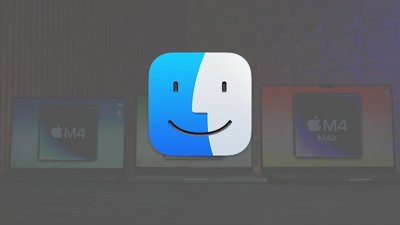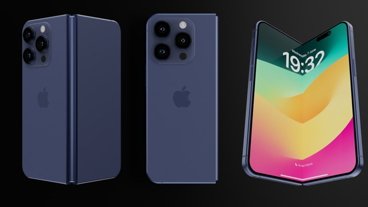The results of the test, according to Bloomberg, said that an Android-based Nexus S phone performed 52 percent faster on average after loading more than 45,000 pages from 1,000 websites compared to iPhone 4.
The average speed difference was about a second longer page load on iPhone 4: 2.14 seconds compared to 3.25 seconds. The more complex the page, the greater the performance difference, Blaze reported. Guy Podjarny, the firm's chief technology officer, said "it’s not that Apple doesn’t care about speed, but Google is fanatical about it."
However, while Blaze maintained that its benchmarks used the newly released iOS 4.3, suggesting that it took into account the fast new Safari browser with Apple's new Nitro JavaScript engine, the way it performed the tests completely bypassed those improvements.
Rather than using Apple's Safari browser directly, Blaze tested page loading on iPhone 4 using the company's own proprietary app that did not take advantage of the new improvements in iOS 4.3.
As noted in a previous report by AppleInsider, apps that implement Apple's UIWebView to provide web browsing functions within an app (as Blaze did), in addition to full screen web apps, do not take advantage of the new web acceleration features Apple introduced in iOS 4.3, including Nitro and a variety of other improvements to the mobile Safari browser.
While Apple hasn't officially commented on the disparity between the newly revamped Safari and the features of the UIWebView framework, it appears that the difference relates to both to the fact that Apple wanted to rapidly roll out new WebKit features quickly to mainstream iOS users in Safari (and simply didn't have time to retrofit every other element of the system with the new code), and also to security considerations.
Apple's new Nitro JavaScript engine (originally called Squirrel Fish Extreme) competes against Google's Chrome V8 and Mozilla's FireFox TraceMonkey to speed JavaScript (the programming language behind the web) using various different approaches, each of which has different strengths and advantages.
Apple's Nitro uses a JIT (just-in-time) compiler as opposed to a traditional interpreter. This requires that Nitro obtain additional security privileges required to compile data into executable code, something Apple reserves for the iOS itself and its bundled apps. Third party iOS apps can't compile code as both a security feature and, apparently, a limitation that prevents middleware platforms (such as Adobe Flash) from competing for iOS developers' attention.
Running an automated test on page loading using the actual Safari browser on iPhone 4 would be far more difficult to perform, but would also fail to account for other, likely more important differences between iOS and devices running Android.
These include overall stability and usability of the platform, power management and battery life, hardware quality, and easy access to iTunes music and movie rentals, iBooks, and App Store, three features Apple has started promoting in series of new ads that end with the line, "if you don’t have an iPhone, well, you don’t have an iPhone.â€
 Daniel Eran Dilger
Daniel Eran Dilger






-m.jpg)






 Malcolm Owen
Malcolm Owen

 Amber Neely
Amber Neely
 Christine McKee
Christine McKee


 William Gallagher
William Gallagher
 Chip Loder
Chip Loder


-m.jpg)






78 Comments
Any time some study comes out pro or against an Apple product, it inevitably fans flames from all sides. Go have fun Apple Devotes and Android Fans. I want to see a big old fight all over a 1 second difference in web page loading on a mobile device. I'll eat my popcorn.
What I found interesting was this:
Apple's Nitro uses a JIT (just-in-time) compiler as opposed to a traditional interpreter. This requires that Nitro obtain additional security privileges required to compile data into executable code, something Apple reserves for the iOS itself and its bundled apps. Third party iOS apps can't compile code as a both a security feature and, apparently, a limitation that prevents middleware platforms (such as Adobe Flash) from competing for iOS developers' attention.
Am I wrong in seeing a double standard here? Granted, it is Apple's devices, and they can do what they want, but still...
Any time some study comes out pro or against an Apple product, it inevitably fans flames from all sides. Go have fun Apple Devotes and Android Fans. I'll eat my popcorn.
What I found interesting was this:Am I wrong in seeing a double standard here? Granted, it is Apple's devices, and they can do what they want, but still...
Relax, it will be fixed in an update. All apps go through approval so I don't see a problem here.
These Flame Wars go on my nerves. You cannot read the comment section of engadget anymore because there is so much hate.
People relax! Its just an OS.
I think this is more about preventing malware from breaching security holes in webkit. I would be willing to give Apple more time to figure it out so that its secure and functional.
Am I wrong in seeing a double standard here? Granted, it is Apple's devices, and they can do what they want, but still...
I'm hoping the Nitro engine will eventually be able to be used by my favourite browser, Atomic Web.
These Flame Wars go on my nerves. You cannot read the comment section of engadget anymore because there is so much hate.
People relax! Its just an OS.
Indeed! I would be the first to point out that all OSs, regardless of the company attached, have positives and negatives against the other OSs. I love aspects of the webOS, and I love aspects of the iOS, and love aspects of the Android OS (I have not had experience with the newest WinMobile OS, so I can't vouch there). There are also aspects I hate on all. Its a to each their own, and respect the decisions and argument points. Studies like this I feel just increase a "Mine is Better/Bigger than Yours" when in the real world, its all about personal preference. Just cause a study says that the thing you have is now "devalued", doesn't mean it really is. If it works great for you, and you like how it works, then the study doesn't mean anything for you. If you happen to have issues that a study shows, then that's something different.